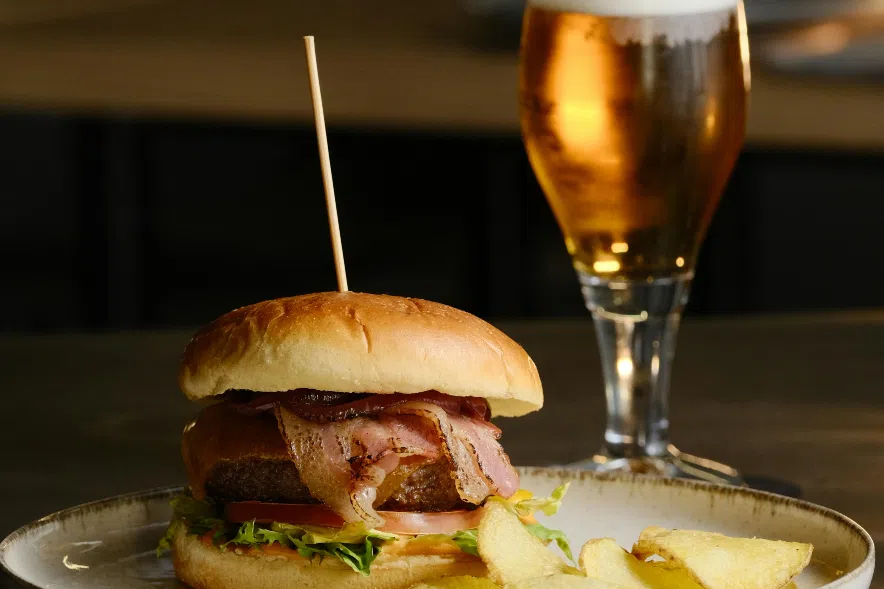Folks in Saskatchewan are drinking less alcohol, according to figures released by Statistics Canada on Oct. 2, a trend reflected across Canada.
Evan Bray asked Dr. Sylvain Charlebois, food distribution and policy professor at Dalhousie University’s AgriFood Analytics Lab about the reasons why.
Charlebois also talks about concerns over Bill C-293, the Pandemic Prevention and Preparedness Act that is currently before the Senate, which he has called Canada’s Vegan Act.
Bray: The most recent piece of research that was done shows consistently across Canada people are drinking less alcohol. what are the reasons for that?
Charlebois: There are several reasons. For one, people don’t have as much cash, and one way to cut when it comes to the budget is to cut down on alcohol. There’s a lot of trading down going on with food, and it’s the same with alcohol. You don’t really need alcohol to survive and people know that.
Another issue is there’s a bit of a demographic shift, where younger generations tend to get some fun by consuming other things, like cannabis for example, and so culturally things are shifting a little bit.
Another issue is health. A lot of people are concerned about their health and they’re cutting back on alcohol.
Across the country, including in Saskatchewan, sales revenues may be up for some liquor boards, but generally speaking, sales by volume are down.
Bray: If revenues are up, is that because they’re increasing prices because sales are going down?
Charlebois: I’m a bit concerned with what’s going on right now because you got many boards who want to look good and provide a hefty dividend to their governments, and the only way to do that right now —because sales by volume are down — is by increasing prices.
Now I’m hearing from the Ontario and Quebec liquor boards that they are looking at selling non-alcoholic beverages. I’m not sure I want the government to sell me non-alcoholic beverages when of course the private sector has done a great job doing so. Is this a start of another shift — stealing sales from the private sector? I have a big concern about that.
Bray: What is measured when you are saying in this report that alcohol consumption is down? Are you measuring strictly sales? What is the data set you’re using?
Charlebois: Most boards report on sales by volume and that’s when you see that numbers are going in two different directions. So revenues are up but sales by volume are down. We’re hiding what is really going on in stores because typically the media will report on revenues. People may think, “Well, we’re selling more alcohol. We’ll be fine. Our boards are doing great.” At some point, my guess is that if prices are not increased boards will actually make less money.
The other thing that concerns me is if you continue to raise prices in stores run by liquor boards, you may actually be pushing a lot of consumers away from stores and a lot of local breweries and wineries rely on these stores to promote their products. You can increase prices, but it may be a disservice to our own agri-food economy.
My oped on Bill C-282 back in Feb. 2024: https://t.co/ohmS89P6VS https://t.co/CNJc8yrpY4
— The Food Professor (@FoodProfessor) October 5, 2024
Bray: Another topic I wanted to touch on is Bill C-293, which you have called Canada’s Vegan Act. Tell me about that.
Charlebois: I’m shocked by the fact that the media is not covering this story all that much. Bill C-293 is the Pandemic Prevention and Preparedness Act. I don’t think anybody would be concerned about that — you want governments to prepare ahead, to plan ahead for the next pandemic.
But once you start reading the bill, it is dangerously vague on a lot of fronts, and the one section that concerns me a whole lot as a food expert is Section L, which looks at animal protein production. In that section, it essentially says we need to de-risk the animal protein sector. It’s not worded in that way, but it means that.
It says that governments should promote the consumption of alternative proteins — word for word, that’s in the bill. You’re effectively giving the power to governments to control what kind of proteins we should
be eating, not just during a pandemic, but before, because this is very much about preparing for a pandemic.
Is this a mandate given to the government to shut down slaughterhouses, to actually scale back some of some of our livestock production? What is going on here? That’s why I kind of called it the Canada’s Vegan Act, because that’s kind of how it reads.
This interview has been edited and condensed
Read more
- People with disabilities twice as likely to have food insecurity, StatCan report says
- Canadians taking more risks to avoid high grocery prices
- Pass the hooch! Sask. marks 100 years since end of prohibition







